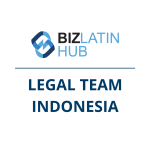Trademark registration serves as a crucial protective measure for businesses in Indonesia. It safeguards brand identity, preventing unauthorized use by competitors. Successful trademark registration can enhance market positioning and foster consumer trust.
Understanding the trademark registration process in Indonesia is essential for entrepreneurs. This process includes several specific criteria, document requirements, and various steps ranging from preliminary searches to application submissions. Familiarity with these components enables businesses to navigate complexities effectively.
This article outlines a step-by-step approach to register a trademark in Indonesia. It covers important topics including eligibility criteria, application methods, fees, and common pitfalls to avoid. Each section aims to provide clarity and actionable insights for interested parties.
Why is Trademark Registration important in Indonesia?
Trademark registration in Indonesia is essential for protecting a company’s goods and services. It ensures exclusive rights, preventing infringement claims. A registered trademark provides legal reinforcement, offering a strong defense in disputes. The first entity to file an application gets priority, guarding against later claims by others.

Failing to register can lead to losing rights over a brand if someone else registers it first. Registered trademarks enhance a company’s reputation and value. This helps in building stronger customer and prospect connections.
Key Benefits:
- Legal Protection: Prevents unauthorized use and provides legal backing.
- Priority Rights: Safeguards the brand by granting usage priority.
- Brand Value: Increases reputation and trust in products or services.
| Benefit | Description |
|---|---|
| Legal Protection | Prevents unauthorized use and offers strong legal defense. |
| Priority Rights | Secures the priority to use the trademark. |
| Enhancement of Brand Value | Strengthens company reputation and customer connections. |
Trademark registration ensures the continuity and strength of your brand in Indonesia.
What are the Trademark Eligibility Criteria?
To register a trademark in Indonesia, the applicant must be an individual or a legal entity acting as the trademark owner. Applicants must provide an example or image reproduction of the trademark during the registration process. They must also classify the goods or services under established standards. The registration process operates under the First to File principle. This gives priority to the first applicant to file a trademark application. Foreign applicants need to file with the Directorate General of Intellectual Property through a registered local trademark agent.
Trademark Eligibility Checklist:
- Applicant Type: Individual or legal entity
- Trademark Example: Image or reproduction
- Classification: Goods or services classification
- Filing Principle: First to File
- Foreign Applicants: Use a local registered trademark agent
Meeting these conditions ensures eligibility for obtaining a trademark in Indonesia.
Conduct a Preliminary Trademark Search
Conducting a preliminary trademark search in Indonesia is crucial. Checking if your desired trademark is already registered ensures compliance with Trademark Act No. 15 of 2001. This step avoids conflicts and confirms the trademark’s distinctiveness.

A thorough trademark search prevents costly legal disputes. Verify that no similar trademark exists. A pre-application search saves time and resources during registration. It also assesses if the trademark violates moral principles or clashes with public order.
A trademark search includes several checks:
- Existing Registrations: Review current trademarks.
- Distinctiveness: Ensure uniqueness.
- Moral and Public Order Compliance: Confirm alignment with societal norms.
Proof of payment for the search is usually required, ensure readiness of payment receipts. An IP Consultant may guide through this process efficiently. Work with a trusted IP Consultant to ensure thoroughness.
Conducting this search is advisable to ensure a smooth trademark registration application process in Indonesia.
Prepare Required Documents for Registration
To register a trademark in Indonesia, gather the necessary documents. A scanned copy of a signed power of attorney is essential. Ensure all provided information about the trademark is correct. This includes the name and distinguishing features.
You must also include:
- The label or logo of the trademark
- A copy of the applicant’s identification card
Sometimes, additional certificates or permissions might be needed. These support the registration process. Verify all documents to ensure they are accurate. Mistakes can cause delays in the trademark application.
Below is a simple checklist for preparing your documents:
| Required Document | Description |
|---|---|
| Power of Attorney | Signed and scanned copy |
| Trademark Details | Name and distinguishing features |
| Label or Logo | Visual representation of the trademark |
| Identification Card | Copy of the applicant’s ID |
| Additional Certificates | Relevant permissions or certificates |
Complete this checklist to streamline the trademark registration. Reviewing each document for accuracy before submission is crucial.
Choose Your Filing Method: Online vs. Paper
In Indonesia, trademarks can be filed using two methods: online and paper. Each method has distinct steps and requirements.
Online Filing: Applicants should use the DGIP e-filing system. They must create an account and submit documents electronically. This modern method is efficient and accessible.
Paper Filing: Applicants submit forms directly at the DGIP office. Foreign applicants must appoint a local agent for this method. The process is traditional but remains an option.
Applicants must pay necessary fees, regardless of the chosen method. Submission initiates the trademark registration. Typically, registration takes 12 to 18 months. This timeline applies to both online and paper submissions.
Filing Method Comparison
| Aspect | Online Filing | Paper Filing |
|---|---|---|
| Submission Mode | Electronic | Physical at DGIP office |
| Foreign Requirement | No local agent needed | Local agent required |
| Document Handling | Digital upload | Manual submission |
Understand the requirements for the chosen filing method. Both methods initiate the same process for trademark registration in Indonesia.
Complete the Trademark Application Form
When completing a trademark application form in Indonesia, ensure all details are accurate. Include the trademark’s name, logo, and distinguishing features to avoid delays in processing. Provide a clear description of goods or services linked to the trademark, matching the correct brand classification. Personal identification details, such as full name, address, nationality, and reasons for the trademark’s design and colors, are essential.
Applicants should write the application in Indonesian and submit it to the Directorate General. Pay the required fees to obtain a filing date. Include necessary documents, like a passport or Indonesian ID card. Supporting certificates may also be needed.
Here’s a summary of required items:
- Trademark name, logo, and features
- Description of goods/services
- Applicant’s full name, address, nationality
- Design rationale
- Passport or Indonesian ID
- Application fees
Handle each step meticulously to ensure a smooth registration process.
Submit Your Application to the DGIP
Submit your application to the Directorate General of Intellectual Property (DGIP) by following these steps. Prepare the trademark application in Indonesian. Include your complete name, address, and nationality. Provide a detailed description of the design and colors.
Submit the application online through the DGIP’s e-filing system. First, create an account on the DGIP website. Payment of fees ensures your filing date is secured. The submission fee goes to the DGIP.
Once submitted, the DGIP conducts a formal check within 15 working days. This ensures all required elements are present. Meeting formalities is crucial before proceeding to the substantive examination phase.
Here’s a summary of required elements for submission:
- Complete name, address, and nationality.
- Description of design and colors.
- Payment of application fee.
Consider this process to ensure legal protection of your trademark rights. Follow the formal check and substantive examination for a successful application.
Pay the Required Registration Fees
To register a trademark in Indonesia, paying the necessary fees is essential. The fee structure is straightforward. For each class, the cost is Rp. 1,800,000. However, small and medium-sized enterprises (SMEs) benefit from a reduced rate of Rp. 500,000 per class.
Proof of payment is mandatory. It confirms the transaction and must be documented with a receipt. This is a crucial step in the trademark registration application process.
Different fees apply based on the goods or services a corporation wishes to register. Accurate fee payment aligns with Indonesian trademark law. The payment method usually requires a formalized receipt to demonstrate the completed transaction.
Trademark renewal fees are USD 250 per trademark for each class. This ensures ongoing legal protection for the trademark rights beyond the initial registration. Timely renewal sustains a registered trademark’s validity.
Below is a summary of the trademark registration fees:
| Type | Fee Per Class |
|---|---|
| Standard | Rp. 1,800,000 |
| SME | Rp. 500,000 |
| Renewal | USD 250 (Post-registration) |
Ensure adherence to legal requirements by keeping records of all transactions.
Monitor Application Status and Respond to Queries
Monitoring your trademark application status in Indonesia is crucial. After submission, a formality check happens within 15 working days. If successful, your application enters the substantive examination phase, lasting up to nine months.
Here’s how to effectively track your application and handle queries:
- Regular Checks: Consistently monitor your application status through the Directorate General of Intellectual Property’s platform. This keeps you updated and prepared for any actions needed.
- Due Diligence: Before submission, ensure your trademark elements comply with requirements. This reduces rejection risks during the monitoring process.
- Communication: Maintain open communication with the Directorate. Promptly respond to any queries to ensure compliance with regulations.
In summary, the trademark registration process may take up to two years due to application volume. Diligent monitoring and active communication help navigate through the process.
To navigate the examination process for a trademark in Indonesia, observe several key steps. The formal examination begins once an application is filed with the Ministry of Law and Human Rights. This stage ensures all legal requirements are met. Applicants then enter the publication period, allowing any party three months to file an opposition within the Trademark Official Journals.
Next, the application moves to the substantive examination, lasting up to nine months. An examiner, appointed by the Minister of Law and Human Rights, evaluates the trademark’s distinctiveness. They check for any misleading elements related to the type, quality, or intended use of the goods or services. This stage also assesses the similarity with existing trademarks. If the application passes, it advances to the examination stage, which may take up to 150 working days if no opposition occurs.
Key Steps:
- Formal Examination
- Publication Period (3 months for opposition)
- Substantive Examination (up to 9 months)
- Examination Stage (up to 150 working days)
Ensure all documents, such as evidence of payment and completed application forms, are in order. An IP Consultant may assist with navigating the process efficiently.
Address Potential Opposition During Publication
During the publication of a trademark application in Indonesia, opposition can occur. This period lasts for two months post-publication. Opposition allows any party to challenge the application due to reasons like prior marks or infringement.
A table below outlines the timeline:
| Event | Duration |
|---|---|
| Opposition Period | 2 months |
| Counter Statement Submission | 2 months |
| Re-examination Process | 2 months |
If someone files an opposition, the involved parties must submit counter statements within two months. Following submission, a re-examination takes place, also lasting two months. All objections must be resolved for the Certificate of Registration to be issued. Completion follows payment of the necessary fee. This process ensures only rightful trademarks receive legal protection.
Receive Your Trademark Certificate
To receive a trademark certificate in Indonesia, follow the required process. Start by submitting the trademark application. The Directorate General of Intellectual Property (DGIP) handles this. After submission, the trademark goes through two examinations: a formal examination and a substantive examination. The formal examination happens first. The substantive examination takes about 9-12 months.
Once the examinations are complete, the trademark is published in the Official Gazette. If no oppositions are filed during this period, DGIP will issue a registration certificate. This step takes an additional 1-2 months.
Expect the entire process, from application to receiving the certificate, to take about 16-18 months. Once granted, the trademark remains valid for 10 years. You can renew your trademark indefinitely. This ensures long-term protection for your brand in Indonesia.
Here’s a simple timeline:
- Submit application.
- Formal examination.
- Substantive examination (9-12 months).
- Publication in the Official Gazette.
- Issue of registration certificate (1-2 months).
Remember, the total time for approval can reach up to 2 years if any issues arise.
What is the First-to-File Principle?
The first-to-file principle in Indonesia prioritizes the first person or entity to file a trademark application. The Directorate General of Intellectual Property (DGIP) oversees this rule. Regardless of prior use, the filing date determines priority.
In the context of the Paris Convention, applicants have six months to claim priority from an earlier foreign application. This option benefits those expanding their trademarks internationally.
The trademark registration process involves several steps, including formal and distinctiveness examinations. Applications take approximately 18-30 months to complete. Any registered trademark not used for five consecutive years can be canceled by the Court of Commerce.
Key points of the first-to-file principle:
- Filing Date: Determines priority.
- International Priority: Six months claim period under the Paris Convention.
- Examinations: Formal and distinctiveness checks.
- Non-use Consequence: Possible cancellation after five years.
The first-to-file rule streamlines the trademark registration process while protecting trademark rights efficiently.
What are the Benefits of Trademark Registration?
Trademark registration offers significant benefits for businesses. It provides legal security for ten years, protecting the trademark owner’s rights. Owners may extend this protection, ensuring continued security. By registering a trademark, businesses establish rightful ownership, crucial if disputes occur about usage.
A registered trademark helps justify the rejection of similar trademark applications. This preserves the trademark’s uniqueness in the market. Securing a trademark gives businesses a court advantage against infringement and piracy attempts.
Moreover, a registered trademark enhances a company’s market value. It strengthens brand identity and builds consumer trust. These factors make trademark registration a vital step for any business looking to protect its intellectual property and sustain its market presence.
Key Benefits:
- Legal security for ten years
- Ownership establishment
- Justification for rejecting similar applications
- Court advantage in infringement cases
- Enhanced market value and brand identity
What are the Trademark Renewal Procedures?
Trademark renewal in Indonesia is critical for maintaining legal protection. A registered trademark remains valid for ten years from its application date. Trademark rights can renew for consecutive ten-year periods without limit.
Trademark owners can submit renewal applications up to twelve months before their trademark expires. No grace period exists, so failure to renew by the deadline means starting a new application.
If a renewal application is late, it must be submitted within six months after expiration. Late submissions incur additional fees for processing. The table below summarizes key renewal details:
| Renewal Aspect | Details |
|---|---|
| Initial Validity Period | 10 years from the application date |
| Renewal Frequency | Every 10 years |
| Early Renewal Submission | Up to 12 months before expiration |
| Late Renewal Submission | Within 6 months after expiration with a fee |
| No Use Cancellation | Possible if unused for 3 years |
Trademark owners need to ensure their marks are used. Continuous registration may be canceled if a trademark remains unused for three years. Both foreign applicants and current trademark owners must be vigilant about renewal timelines to maintain their intellectual property rights.
Common Pitfalls to Avoid During Registration
Ensuring success in trademark registration requires avoiding common pitfalls. First, ensure your trademark is distinct and not similar to an existing approved trademark. Similarities lead to rejection.
Avoid trademarks conflicting with national or religious ideologies. This prevents objections during the registration process. Your trademark must also match its classification. Misleading descriptions result in refusal.
Avoid self-proclaiming trademarks, like using “Number 1.” Such claims are misleading and often rejected. Before submitting, conduct a thorough trademark search. Include similar trademarks with earlier submissions to prevent conflicts.
Below are common pitfalls in a table format for clarity:
| Pitfall | Consequence |
|---|---|
| Similar to existing trademarks | Application rejection |
| Conflicts with ideologies or morals | Objections during registration |
| Misleading descriptions | Application refusal |
| Self-proclaiming terms (e.g., “Number 1”) | Seen as misleading, leading to rejection |
| Lack of thorough trademark search | Conflicts causing delays or rejection |
Avoid these pitfalls to streamline the process of trademark registration and secure legal protection.
Protect Your Brand with Trademark Registration in Indonesia
At Biz Latin Hub, we offer trademark registration services to help your business secure its intellectual property in Indonesia. Registering your trademark gives you exclusive rights, prevents unauthorized use, and protects your brand identity.
Our team handles the entire registration process for you. We conduct thorough trademark searches, prepare and submit your application to the Directorate General of Intellectual Property (DGIP), and ensure your filing meets all legal requirements. If any issues arise, we provide guidance to resolve them quickly.
Trademark registration is essential for safeguarding your brand in Indonesia’s first-to-file system. With our expertise in legal compliance, we help you avoid delays, protect your assets, and ensure long-term legal coverage through timely renewals.
Partner with us to protect your business and build trust with your customers. Contact Biz Latin Hub to start your trademark registration today.





